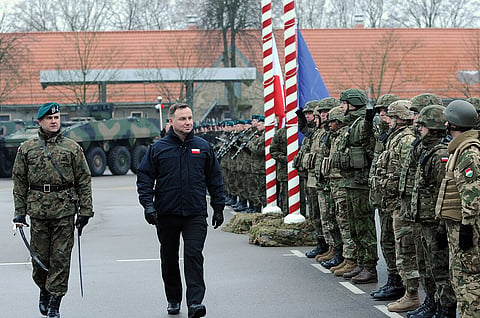

Polish President Andrzej Duda has urged NATO member states to raise their defense spending to at least 3% of GDP, according to a letter obtained by Euronews. The appeal, sent on Wednesday, coincides with Poland’s 26th anniversary as a full NATO member and calls for stronger military commitments ahead of the alliance’s upcoming summit in the Netherlands.
In the letter, Duda emphasized the urgency of bolstering defense capabilities amid growing geopolitical tensions. “We no longer have time for discussions. We need decisions. We must act now,” he wrote. The Polish president also revealed that he had formally requested NATO Secretary General Mark Rutte to prioritize the issue of increased defense spending at the summit in The Hague.
Poland’s Push for Greater Security Commitments
Duda’s appeal aligns with his broader efforts to position Poland as a key security provider within NATO. Earlier this month, he proposed amending the Polish Constitution to mandate a minimum defense spending of 4% of GDP. “From the beginning of my presidency, I wanted Poland to be perceived not just as a recipient but also a provider of security,” Duda stated.
The letter arrives amid a renewed focus on European rearmament. Last week, Polish Prime Minister Donald Tusk announced plans to reintroduce military training for all adult men, effectively reinstating conscription. Similarly, Latvian President Edgars Rinkēvičs recently called on European nations to strengthen their defense capabilities through increased military spending and the reintroduction of conscription. “Seeing what is happening in the world, the decision that we took – many other European countries need to follow that,” Rinkēvičs said.
The push for higher defense spending reflects growing concerns over regional security, particularly in Eastern Europe, as NATO members prepare to address these challenges at the upcoming summit.